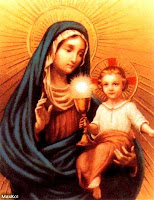A Glimpse of St. Thomas Aquinas
[It has been four years since I originally shared this post. I thought it might be worthwhile to do so again on the memorial of this great Dominican saint and theologian.]
St. Thomas
Thomas Aquinas was born to a noble family in Aquino (Italy Saint Albert
“He devoted all his energy to the service of truth, eagerly searching it out, lovingly contemplating it, and imparting it to others through his writing, his teaching and his preaching. His life was marked by devotion to the Passion of the Lord, to the mystery of the Eucharist, and to the Virgin Mary, Mother of God.”
Known as the Angelic Doctor, he is often described as one of the greatest philosophers, theologians and Catholic teachers of all time. This is the man who produced the Summa Theologiae, the theological master piece that has survived centuries of scrutiny, continues to guide the Church, and is the foundation upon which Dominican friars and countless priests, religious and lay men and women have been and are currently being formed.
As brilliant, learned, and insightful as St. Thomas Aquinas was he was, above all things, humble. Less we forget that learning can often lure us to excessive pride, he left us this pearl of wisdom: “The highest form of teaching comes not from books written, but from lives lived.”
Thomas died on March 7, 1274. He was canonized in 1323 and declared a Doctor of the Catholic Church in 1567. Pope Leo XII declared him Patron of all Universities and Catholic Schools
No discussion of St. Thomas Aquinas, even such a short inadequate summary as this, should end without some mention of the beautiful Eucharistic hymns that he left for his beloved Church. Only a man who intimately loved his Eucharistic Lord could have been used by that loving God to compose Adoro te Devote, Pange Lingua, Panis Angelicus or Tantum Ergo. Why not spend a few quiet minutes today listening to and allowing the majestic nature of these songs stir your heart and soul?
[There are many ways to access the Summa Theologiae. New Advent has an online-searchable version. If you don’t feel up to tackling the Summa head on right now, then consider a great classic - one of my favorite books - My Way of Life (Pocket Edition of St. Thomas, The Summa Simplified for Everyone) by Walter Farrell, O.P. S.T.M. and Martin J. Healy, S.T.D.]




Comments